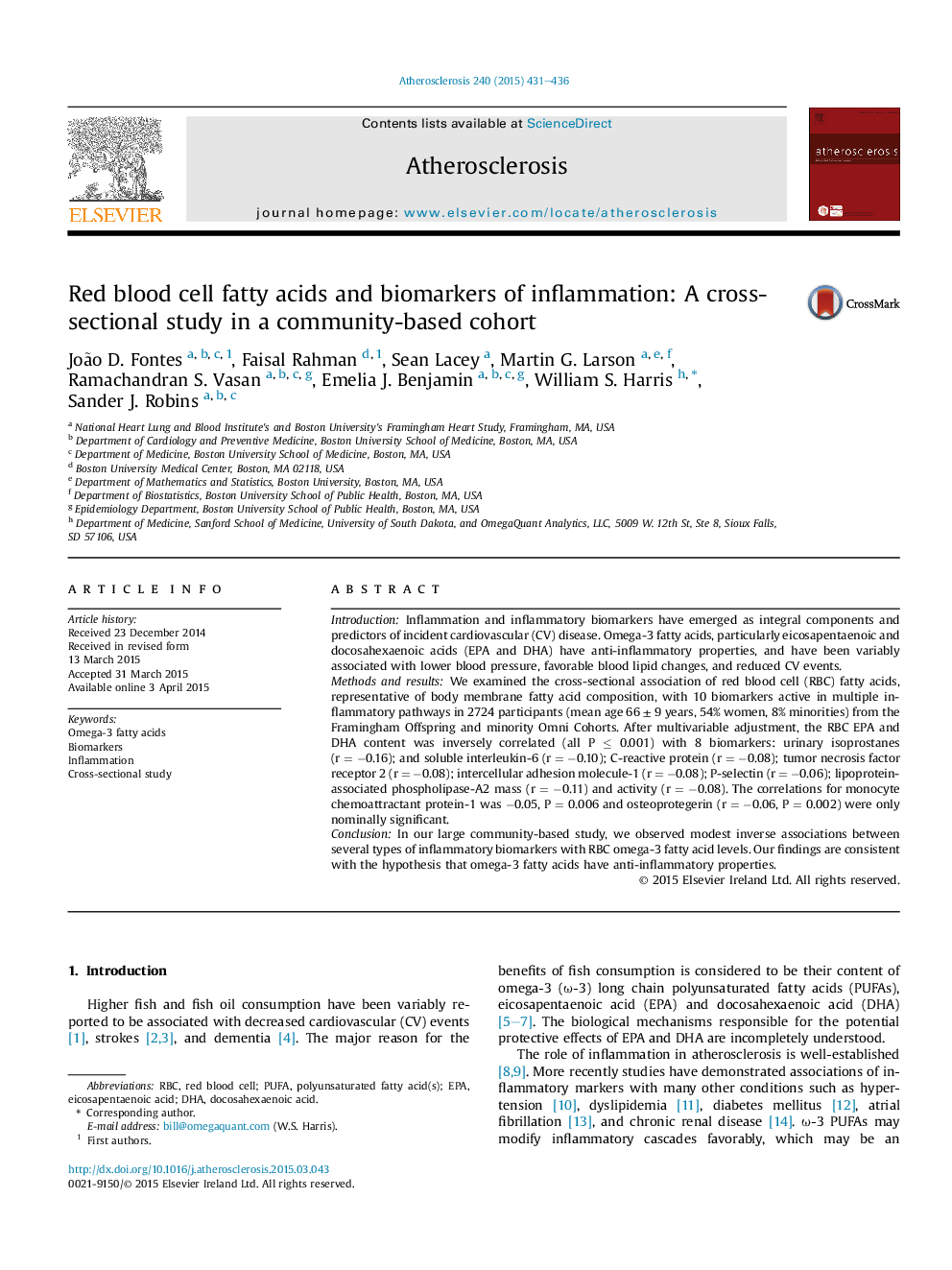| کد مقاله | کد نشریه | سال انتشار | مقاله انگلیسی | نسخه تمام متن |
|---|---|---|---|---|
| 5943965 | 1574722 | 2015 | 6 صفحه PDF | دانلود رایگان |
- RBC omega-3 FAs were compared with 10 inflammatory biomarkers in 2724 subjects.
- RBC FA levels are less affected by daily variations in intake than plasma FA levels.
- 8 out of 10 biomarkers were inversely associated with omega-3 levels.
- These findings suggest that omega-3 FA may have anti-inflammatory properties.
IntroductionInflammation and inflammatory biomarkers have emerged as integral components and predictors of incident cardiovascular (CV) disease. Omega-3 fatty acids, particularly eicosapentaenoic and docosahexaenoic acids (EPA and DHA) have anti-inflammatory properties, and have been variably associated with lower blood pressure, favorable blood lipid changes, and reduced CV events.Methods and resultsWe examined the cross-sectional association of red blood cell (RBC) fatty acids, representative of body membrane fatty acid composition, with 10 biomarkers active in multiple inflammatory pathways in 2724 participants (mean age 66 ± 9 years, 54% women, 8% minorities) from the Framingham Offspring and minority Omni Cohorts. After multivariable adjustment, the RBC EPA and DHA content was inversely correlated (all P â¤Â 0.001) with 8 biomarkers: urinary isoprostanes (r = â0.16); and soluble interleukin-6 (r = â0.10); C-reactive protein (r = â0.08); tumor necrosis factor receptor 2 (r = â0.08); intercellular adhesion molecule-1 (r = â0.08); P-selectin (r = â0.06); lipoprotein-associated phospholipase-A2 mass (r = â0.11) and activity (r = â0.08). The correlations for monocyte chemoattractant protein-1 was â0.05, P = 0.006 and osteoprotegerin (r = â0.06, P = 0.002) were only nominally significant.ConclusionIn our large community-based study, we observed modest inverse associations between several types of inflammatory biomarkers with RBC omega-3 fatty acid levels. Our findings are consistent with the hypothesis that omega-3 fatty acids have anti-inflammatory properties.
Journal: Atherosclerosis - Volume 240, Issue 2, June 2015, Pages 431-436
